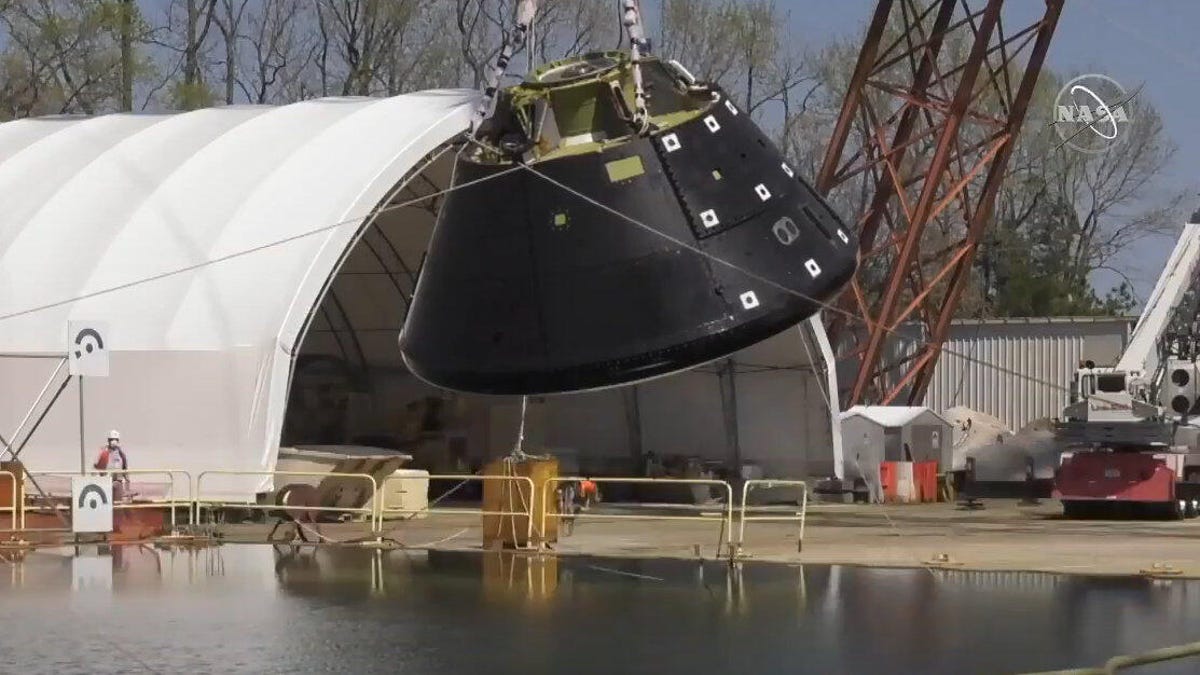Watch NASA drop a test spacecraft into a million-gallon pool
The Orion spacecraft is designed to carry astronauts to the moon and land in the ocean when it gets back.
NASA's Artemis program aims to take astronauts back to the moon for the first time since the Apollo era. The agency successfully fired up part of its big SLS rocket system last month. On Tuesday, NASA dropped a test version of the Orion spacecraft into a big pool of water. Really big.
After a space voyage, Orion is made to splash down in the ocean with the help of parachutes. To make sure it's safe for humans, NASA is collecting data on its performance through a series of water impact drop tests at the Langley Research Center in Virginia.
NASA TV livestreamed the water drop, which produced a satisfying splash. The test appeared to go well, with the capsule behaving as expected.
The 14,000-pound (6,350 kilogram) test version of Orion mimics the one that will fly through space for a future crewed Artemis mission. The capsule landed in a million-gallon (3.8 million liter) pool of water called the Hydro Impact Basin after being released from a height of 7 feet (2 meters).
3...2...1... release! 🌊
— NASA (@NASA) April 6, 2021
An exact duplicate of the @NASA_Orion spacecraft makes a splash as it is dropped from 7 feet above the Hydro Impact Basin at @NASA_Langley. The data will be evaluated to prepare for splashdown of a crewed Orion for #Artemis II: pic.twitter.com/srt8D8rmug
"The test data will help engineers better understand what Orion and its crew may experience when landing in the Pacific Ocean," said NASA in a statement in March.
The space agency is planning more tests, including a drop test from a greater height and a test that will involve swinging Orion into the water from an angle.
NASA has been eyeing an ambitious 2024 date for returning astronauts to the moon through the Artemis program.
Before putting boots on the lunar surface, NASA plans to launch an uncrewed Artemis I mission as early as this year and then a crewed Artemis II mission around the moon as early as 2022. That would be the first opportunity for humans to experience an ocean splashdown in an Orion capsule. It should be quite a ride.
Follow CNET's 2021 Space Calendar to stay up to date with all the latest space news this year. You can even add it to your own Google Calendar.


